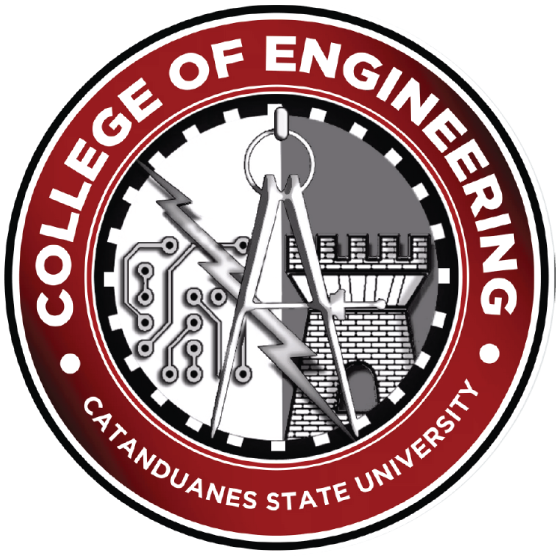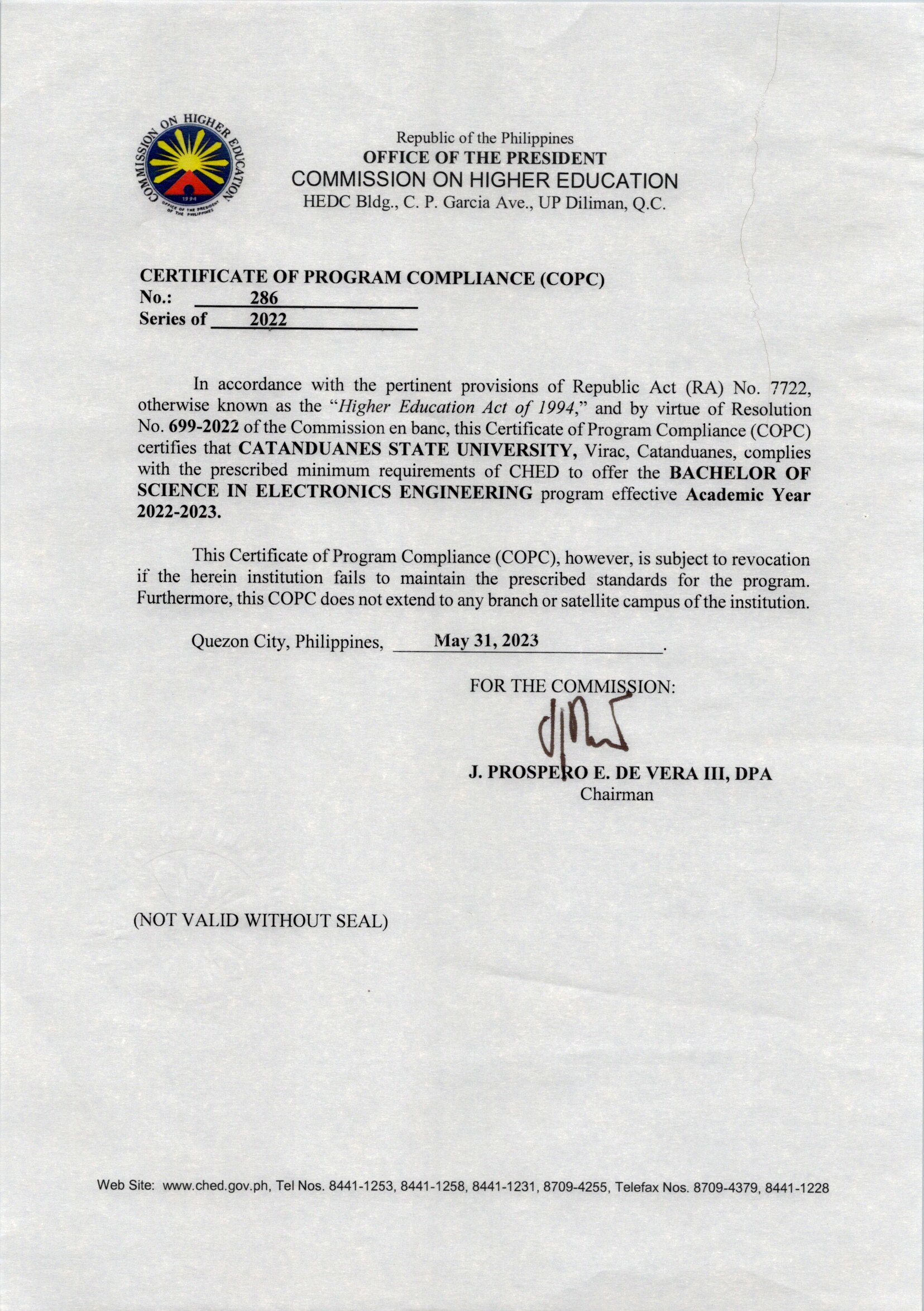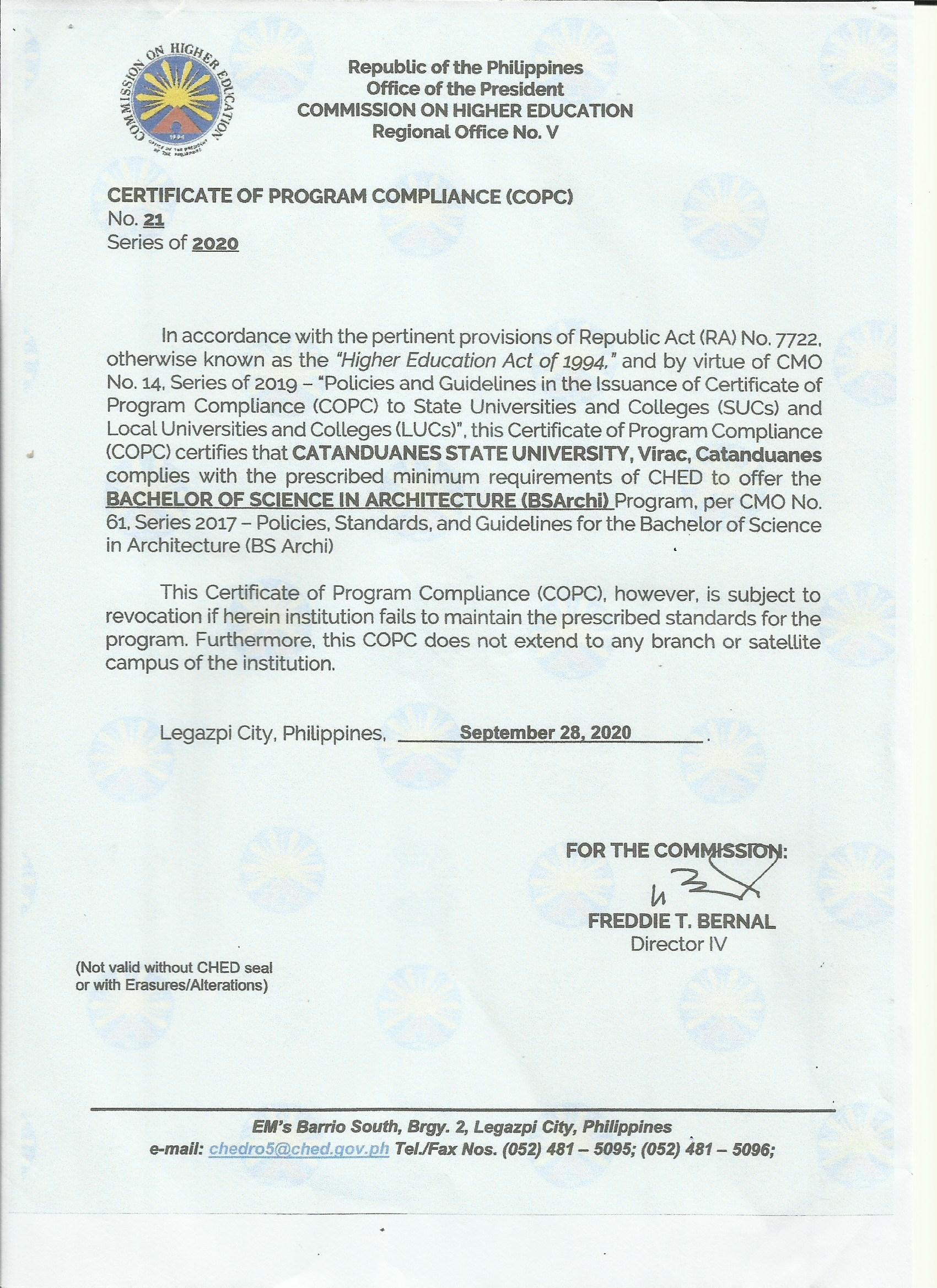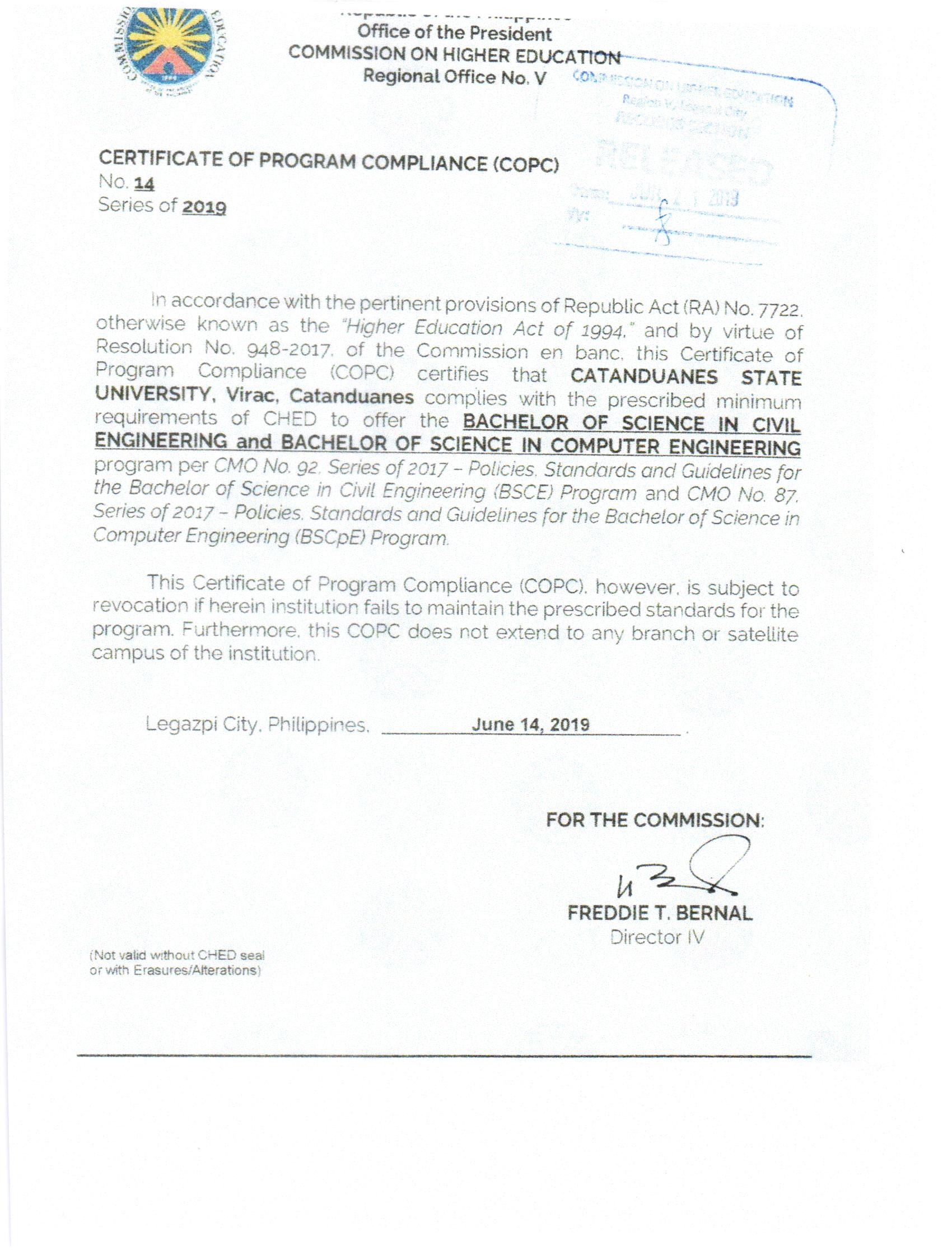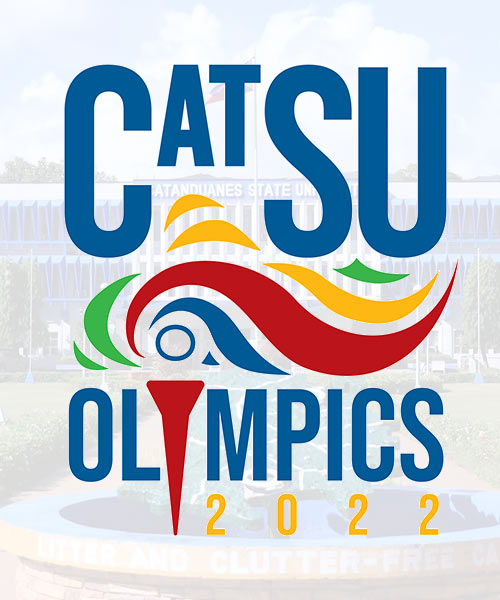Goals
Provide engineering education needed for personal growth, provincial and national development, as well as global competitiveness.
Objectives
- Produce graduates equipped with competencies required of professional engineers who can be employable locally and abroad.
- Develop research and extension capabilities and activities geared towards national development.
- Strive for and promote excellence in engineering education, through the delivery of quality instruction to its students.
- Develop students own ideals, desirable attitudes and personal discipline.
- Develop critical thinking and decision making in the field of engineering education.
Offered Courses
Computer Engineering
- Apply knowledge of mathematics and science to solve complex engineering problems;
- Design and conduct experiments as well as to analyze and interpret data;
- Design a system, component, or process to meet desired needs within realistic constraints such as economic, environmental, social, political, ethical, health and safety, manufacturability, and sustainability, in accordance with standards;
- Identify, formulate and solve complex engineering problems;
- Communicate effectively in verbal and non-verbal communication;
- Understand the impact of engineering solutions in a global, economic, environmental, and societal context;
- Use techniques, skills, and modern engineering tools necessary for computer engineering practice;
- Know and understand engineering and management principles as a member and leader of a team, and to manage projects in a multidisciplinary environment; CMO No. 87, s. 2017
- Understand at least one specialized field of computer engineering practice;
- Participate in the generation of new knowledge through research, extension and development projects;
- Support local, regional and national development plans along with education, environment, socio-economic, health, gender and development, science and technology; and
- Preserve and promote Filipino historical and cultural heritage
Civil Engineering
- Apply knowledge of mathematics and science to solve complex civil engineering problems;
- Design and conduct experiments, as well as to analyze and interpret data;
- Design a system, component, or process to meet the desired needs within realistic constraints in accordance with standards;
- Identify, formulate, and solve civil engineering problems;
- Communicate effectively civil engineering activities with the engineering community and with society at large;
- Understand the impact of civil engineering solutions in a global, economic, environmental and societal context;
- Use techniques, skills and modern engineering tools necessary for civil engineering practice;
- Know and understand engineering and management principles as a member and leader of a team, and to manage projects in a multidisciplinary environment; (CMO 92, 2017, Sec. 6.2.d and 6.2.I)
- Understand at least one field of civil engineering practice
- Participate in the generation of new knowledge through research, extension and development projects;
- Support local, regional and national development plans along with education, environment, socio-economic, health, gender and development, science and technology; and
- Preserve and promote Filipino historical and cultural heritage.
Summary of Required Number of Units
Computer Engineering
| Area | No. of Units | ||
|---|---|---|---|
| A | General Education Courses | 44 | |
| 1 | Language and Literature | 9 | |
| 2 | Mathematics, Nat. Sci. & I.T. | 3 | |
| 3 | Humanities and Social Science | 12 | |
| 4 | Mandated Subjects | 6 | |
| 5 | Physical Education | 8 | |
| 6 | National Service Training Program | 6 | |
| B | Common Core Courses | 0 | |
| C | Professional Courses | 120 | |
| D | Professional Elective Courses | 0 | |
| Total No. of Units | 164 | ||
Civil Engineering
| Area | No. of Units | ||
|---|---|---|---|
| A | General Education Courses | 50 | |
| 1 | Language and Literature | 6 | |
| 2 | Mathematics, Nat. Sci. & I.T. | 6 | |
| 3 | Humanities and Social Science | 15 | |
| 4 | Mandated Subjects | 9 | |
| 5 | Physical Education | 8 | |
| 6 | National Service Training Program | 6 | |
| B | Common Core Courses | 0 | |
| C | Professional Courses | 122 | |
| D | Professional Elective Courses | 0 | |
| Total No. of Units | 172 | ||
Admission and Retention Policies
A. Admission Policies
An applicant to be admitted to the program should meet the following requirements:
- General Weighted Average (GWA) of 83% or better or its equivalent in High School; and
- No grade lower than 80% or its equivalent in the final grade in any subject
The applicant qualifies to the program as determined by the College based on the following criteria:
| Criteria | Weight | |
|---|---|---|
| A | GWA | 15% |
| B | Differential Aptitude Test | 25% |
| DAT Result | ||
| C | Interview | 10% |
| D | Written Exam | 50% |
| Total | 100% | |
For Transferees
A Transferee to be admitted to the program should have a GWA of 2.7 or better or its equivalent.
For Shifters
Upon approval of the application to shift to another program, the shifter shall be subjected to the requirement for the transferee.
B. Retention Policies
A student shall be allowed to continue in the program subject to the following requirements:
- General Weighted Average of 2.7 or better in the preceding semester; and
- Failed Information Technology core, professional or elective course be re-enrolled only once
Relative Links
BS Electronics Engineering
BS in Architecture
BS in Civil Engineering & Computer Engineering

Engr. Pedro R. Arcilla, Jr. - Dean
Dean

Engr. Dexter M. Toyado
Director of CICCS

Engr. Jerilee G. Tadoy
Instructor

Engr. Melvyn McArthur R. Tating
Instructor

Engr. Michael M. Traballo
Instructor

Engr. Nanette M. Valeza
Guidance Facilitator

Engr. Karen A. Bañas
Chairperson

Engr. Ronnie B. Santelices
Research Coordinator

Engr. Mark Lester D. Rojas
Extension Coordinator

Engr. Rene Constantine J. Avila
Alumni Coordinator

Engr. Morris U. Aquino
Instructor

Engr. Mekaela Louise B. Taroy
Instructor

Engr. Lloyd D. Yusores
Instructor

Engr. Rizza Lea L. Mendoza
Instructor

Engr. Karl Kenneth S. Araojo
Instructor

Engr. Marianne Tomagan
Instructor

Engr. Richard T. Bernal
Instructor

Engr. Lucina T. Templonuevo
Instructor

Engr. Jose P. Tapel
Instructor

Engr. Jayrald T. Urbano
Instructor

Dickenson Yuga
Instructor

Richmonilyn Salvador
Instructor

